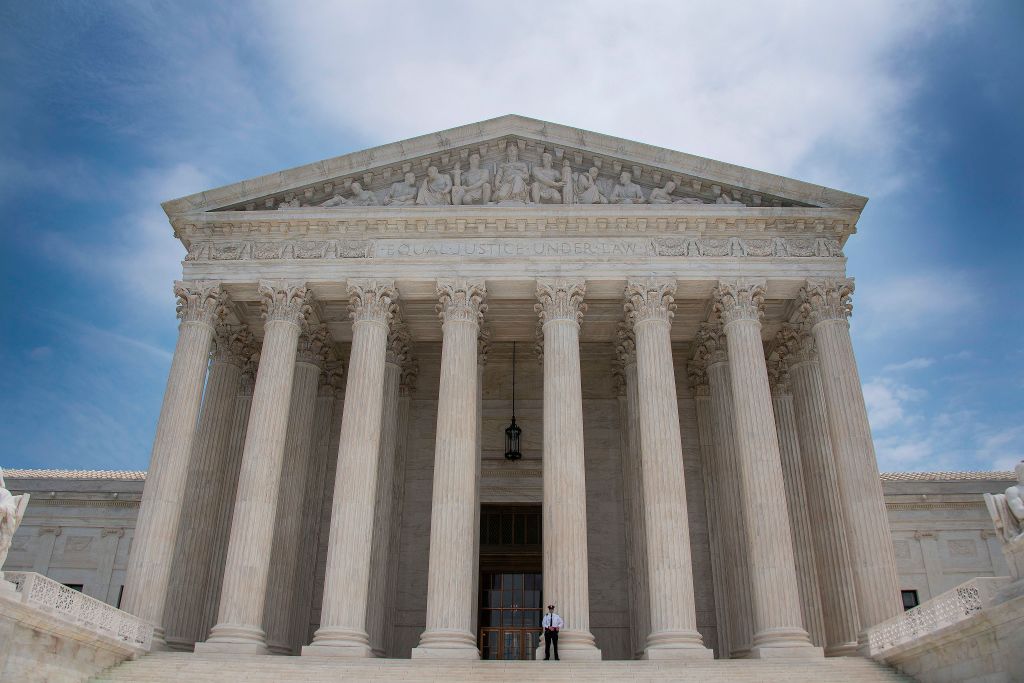
June 6, 2025
A straight white woman claims she was passed over for a promotion in favor of a lesbian woman and later replaced by a gay man.
The only two Black Supreme Court Justices—Clarence Thomas and Ketanji Brown Jackson—share a difference of opinion in a recent decision that may make it easier for “reverse discrimination” lawsuits in the workplace to be filed, CNN reports.
Thomas, who is conservative, blames employers’ obsession with diversity, equity and inclusion (DEI) in the case of a straight white woman who claimed she was passed over for promotions in favor of gay employees.
“American employers have long been ‘obsessed’ with ‘diversity, equity, and inclusion’ initiatives and affirmative action plans,” Thomas wrote. “Initiatives of this kind have often led to overt discrimination against those perceived to be in the majority.”
Marlean Ames from Ohio challenged a requirement from an appeals court that outlined the need to demonstrate “background circumstances” for the suit to move forward when members of a “majority” group push claims of discrimination. A plaintiff can meet the requirement with evidence that documents patterns of discrimination against members of a majority.
This is something Ames couldn’t do, so after losing in lower courts, she took her case to the country’s highest court.
Despite the climate of political division, the ruling came from a unanimous coalition of both conservative and liberal justices who ruled in her favor. In the opinion, the liberal Jackson wrote that past cases of the Supreme Court made it clear that the requirements needed for a successful lawsuit under federal anti-discrimination law “do not vary based on whether or not the plaintiff is a member of a majority group.”
The “background circumstances” rule, she added, “flouts that basic principle.”
Ames’ case goes back to when the heterosexual woman started working for the Ohio Department of Youth Services in 2004. She alleges discrimination against her due to her sexual orientation after being passed over for a promotion in 2019 in favor of a lesbian woman. Ames said she was replaced in her role by a gay man, according to Fox News.
The Justice Department, the American First Legal Foundation, and the libertarian Pacific Legal Foundation, supported her. The NAACP Legal Defense and Education Fund was one of the first major organizations to support Ohio in the case.
The Cincinnati-based 6th US Circuit Court of Appeals ruled for Ohio when it came to the “background circumstances” requirement. Federal appeals courts in Denver, St. Louis, Chicago, and Washington, D.C.. all have the same rules. Ames’ lawyer and director of the University of Virginia School of Law’s Supreme Court Litigation Clinic, Xiao Wang, celebrated the victory.
“We wanted to make sure that the same laws and standards apply to everyone,” Wang said. “This Supreme Court ruling makes it easier for courts to root out unlawful discrimination in the workplace.”
The justices’ decision doesn’t guarantee an automatic suit win for the Ohio resident or others in similar circumstances. Instead, the opinion may eliminate barriers that plaintiffs experienced in demonstrating that employers acted with discriminatory motives.
RELATED CONTENT: Elevating Your Excellence: Earl ‘Butch’ Graves Jr. Leads Black Enterprise’s 55-Year Charge With Unwavering Vision

